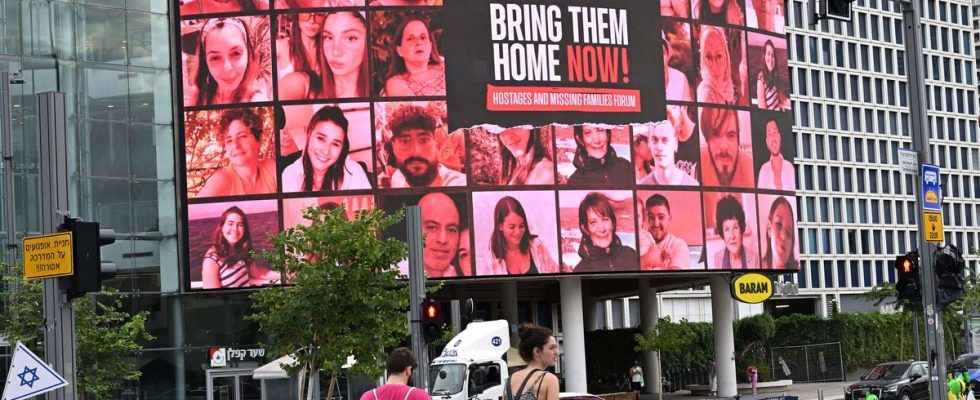This Monday, the Israeli army announced that 199 hostages were in the hands of Hamas in the Gaza Strip. Hostages that the terrorist organization kidnapped during its massive attack on Saturday, October 7 against Israel. Ten days have therefore passed without the Hebrew State managing to obtain a release, knowing that Hamas broadcast a video on Monday evening featuring a young woman “prisoner of Gaza” without the document being able to be identified.
How to handle the situation? Prepare a rescue operation? 20 minutes contacted Christophe Caupenne, former commander and chief negotiator of the Raid between 2000 and 2011, to find out more.
What is the first thing to do after a hostage situation?
The priority is to define the profile of the hostage, which has three main types of function. First, the shield hostage. The latter serves to protect against reprisals. Typically, avoiding bombings in Gaza or, in other situations, covering the escape of terrorists. This term is used when the hostage serves to prevent an assault, whatever its scale.
Second, the hostage lever. It is used as blackmail to obtain something in particular: a car to escape, a ransom, to restore water and electricity to Gaza. The terrorists make a specific demand in exchange for the hostage.
Finally, there is the unconditional hostage. He is a hostage who we know in advance is going to die, that the very purpose of his capture is to kill him. We can cite the case in France of Hyper Cacher, or the Daesh hostages in 2014 to strike public opinion with ultra-violent and filmed deaths.
The hostages therefore appear to be, in the case of Hamas, shield hostages. Will this change the strategy of the Israeli army?
Israel faces a double challenge. First, the number of hostages: 199 people were captured by Hamas, according to the army, which makes a liberation action very complicated. Hamas probably separated the hostages into different groups. However, the only way to free the hostages by force is a special commando force which benefits from a total surprise effect, otherwise the terrorists have time to kill the hostages as soon as they feel attacked. An almost impossible surprise effect with so many hostages in different locations probably.
Second difficulty, the topography of Gaza. A network of underground tunnels forms a real city beneath the city, undetectable to Israeli radars, planes or satellites, and prevents any information on the location of the hostages.
If the strong method is impossible, how can we then negotiate releases with Hamas?
We cannot negotiate with Hamas and Israel will never do so, because that would be inviting it to the negotiating table as if it were a state when it is a terrorist organization. That would somehow legitimize it. Israel can go through third states, notably Iran, which will negotiate with Hamas. But this is state geopolitics and has little chance of succeeding.
So what are the remaining means of action for Israel?
There is criticism of cutting off water, electricity, gas and telephone, but this is a normal and logical process that Israel carries out. Every time hostages are taken, we do this in France. The aim is to blind the terrorists as much as possible or to constrain them enormously. People are offended by the water and electricity cut in Gaza because it is a massive use on a massively civilian population, but it is one of the only means that Israel has to disorient the terrorists a little. .
Is time running out?
Time is not necessarily an enemy; in fact, there is no time rule for hostage-taking. When you detain people, you have to take care of them: feed them, move them, treat them if they are injured. This can lead terrorists to make mistakes, or to be detected – although this would have been true in a city and not in an underground network like in Gaza. This may also give Israel time to infiltrate Gaza to get as close as possible to the terrorists.
But time of course does not only have advantages. Over time, there is an effect of dehumanization of the hostages: after a while, they are soiled, mistreated, weakened and the terrorists no longer recognize them as humans, which increases the risk of blind revenge against them.
There was talk of shield hostages, but Israel bombs Gaza all the same. How to interpret it?
The logic of current Israeli actions, notably the bombing of Gaza, should not be seen as an attempt to free the hostages. The goal is to destroy Hamas and get rid of this terrorist organization. If hostages are released, so much the better. The more lives saved, the better. But that is not Israel’s main goal right now. On the one hand, given the difficulty of the task, and on the other, given the importance for the country of getting rid of Hamas as a priority.

